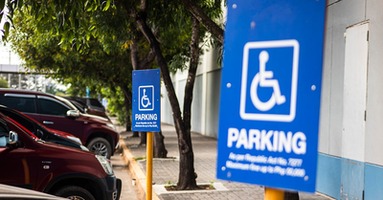
Navigating State-Specific Laws for Disabled Parking Permits in Pregnancy
Introduction
Pregnancy is a transformative experience, bringing with it a multitude of physical and emotional changes. While pregnancy is often celebrated as a time of joy and anticipation, it also presents challenges, particularly when it comes to mobility. As a woman's body adapts to accommodate the growing fetus, common pregnancy-related conditions such as back pain, swelling, and fatigue can make everyday tasks more difficult. For some women, these challenges are severe enough to warrant the use of a disability pass, which allows them to park closer to their destinations, thereby reducing the physical strain associated with walking long distances.
However, the process of obtaining a disability pass during pregnancy is not straightforward, as the laws governing these passes vary significantly from state to state. Some states recognize pregnancy-related mobility issues as a valid reason for issuing a temporary handicap tag, while others do not. Additionally, the application process, eligibility criteria, and duration of permits can differ widely across jurisdictions.
This article aims to provide a comprehensive overview of the state-specific laws regarding disability passes, with a particular focus on how these laws apply to pregnant women. We will explore the differences in regulations, the criteria for obtaining a tag, and the practical implications of these laws for pregnant women who face mobility challenges. By understanding these nuances, pregnant women and their healthcare providers can better navigate the process of obtaining a disability pass when needed.
Understanding Disabled Parking Permits: An Overview
What Are Disabled Parking Permits?
Disabled parking permits, also known as handicap parking permits or placards, are issued to individuals with mobility impairments, allowing them to park in designated spaces that are closer to building entrances and other essential areas. These passes are intended to provide easier access for people who have difficulty walking due to a variety of medical conditions.
Types of Disabled Parking Permits
There are generally two types of handicap tags: temporary and permanent.
Temporary Passes: These are issued to individuals with short-term mobility impairments that are expected to improve over time. Examples include injuries, surgeries, or pregnancy-related conditions that limit mobility. The validity period of temporary passes varies by state, typically ranging from a few weeks to several months.
Permanent Passes: These are issued to individuals with long-term or permanent disabilities that significantly impact their mobility. Conditions that qualify for permanent passes include chronic illnesses, severe physical disabilities, or conditions that result in permanent mobility impairment. Permanent passes are usually valid for several years and require periodic renewal.
Eligibility for Disabled Parking Permits
The eligibility criteria for disability passes vary from state to state, but generally include conditions that significantly impair a person’s ability to walk. These may include:
- Inability to walk more than 200 feet without rest
- Use of a mobility device such as a wheelchair, cane, or walker
- Severe respiratory conditions
- Severe cardiac conditions
- Severe arthritis or other musculoskeletal conditions
Pregnancy, in and of itself, is not typically considered a disability under most state laws. However, certain pregnancy-related conditions that impair mobility may qualify a pregnant woman for a temporary handicap tag.
The Importance of State-Specific Laws
While the federal government provides broad guidelines for accessibility, the specifics of disability pass regulations are determined at the state level. This means that each state has its own set of rules governing who is eligible for a pass, how to apply, and what documentation is required. These differences can significantly impact pregnant women seeking a pass, as some states are more accommodating of pregnancy-related mobility issues than others.
Disabled Parking Permits for Women During Pregnancy
Pregnancy and Mobility Challenges
Pregnancy is not typically classified as a disability; however, the physical changes that occur during pregnancy can significantly impact a woman's mobility. Common pregnancy-related conditions that can impair mobility and the reason why pregnant women need disabled parking permits include:
- Sciatica: A condition where the expanding uterus places pressure on the sciatic nerve, causing pain that radiates down the legs.
- Pelvic Girdle Pain (PGP): Pain in the pelvic area due to the loosening of ligaments in preparation for childbirth.
- Swelling (Edema): Swelling in the legs and feet can make walking uncomfortable and difficult.
- Fatigue: Extreme tiredness, especially in the third trimester, can limit a woman's ability to walk long distances.
- Shortness of Breath: As the baby grows, the diaphragm can be compressed, making it hard to breathe deeply and causing fatigue when walking even short distances.
- Pre-existing Mobility Issues: Some women may have pre-existing conditions, such as arthritis, that are exacerbated by pregnancy.
For some women, these conditions are severe enough to necessitate the use of a disability tag, particularly in the later stages of pregnancy. However, whether or not a pregnant woman qualifies for a pass depends on the laws of her state.
State-Specific Approaches to Disabled Parking Permits During Pregnancy
The treatment of pregnancy-related mobility issues in the context of disability passes varies widely across the United States. Below, we will examine how different states approach the issue and what pregnant women in these states need to know.
1. California
Eligibility: California is one of the more accommodating states when it comes to issuing handicap tags to pregnant women. The state recognizes pregnancy-related conditions that impair mobility as a valid reason for obtaining a temporary disability pass.
Application Process: To apply, a pregnant woman must obtain a Medical Certification of Disability (Form REG 195) from her healthcare provider, who must certify that her mobility is significantly impaired due to her pregnancy. The completed form is then submitted to the California Department of Motor Vehicles (DMV).
Duration: The temporary pass is typically issued for a period of up to six months, but it can be extended if the mobility impairment persists.
Considerations: California's approach is relatively flexible, allowing pregnant women to obtain the support they need during pregnancy without significant bureaucratic hurdles.
2. New York
Eligibility: New York also allows pregnant women to apply for a temporary handicap tag if they experience severe mobility challenges related to their pregnancy. The state’s guidelines acknowledge that pregnancy can cause conditions like sciatica or pelvic pain that may warrant the use of a accessible parking space.
Application Process: The application requires a completed form from a licensed medical provider who can attest to the pregnancy-related mobility issues. The form, along with any required documentation, is submitted to the local issuing agent, which is typically the city or town hall.
Duration: Temporary passes in New York are usually issued for six months, with the possibility of renewal if necessary.
Considerations: New York’s approach is supportive of pregnant women, recognizing the unique challenges they face and providing a relatively straightforward path to obtaining a pass.
3. Texas
Eligibility: Texas is another state that provides disability passes to pregnant women experiencing mobility issues. The Texas Department of Motor Vehicles (TxDMV) allows for temporary passes to be issued based on a medical provider’s certification of a pregnancy-related disability.
Application Process: Pregnant women must have their healthcare provider complete a portion of the application form (Form VTR-214), certifying that the pregnancy has caused a temporary disability. The form is then submitted to the county tax assessor-collector’s office.
Duration: The temporary pass is valid for up to six months, with an option for renewal if needed.
Considerations: Texas offers a supportive framework for pregnant women, with clear guidelines and a relatively simple application process.
4. Florida
Eligibility: Florida’s laws regarding disability passes for pregnancy-related conditions are somewhat more restrictive. While the state does issue temporary passes for temporary disabilities, pregnancy is not explicitly mentioned as a qualifying condition. However, if a healthcare provider certifies that the pregnancy has caused a mobility impairment, a temporary pass may be issued.
Application Process: The application form (Form HSMV 83039) must be completed by a licensed physician, who certifies that the applicant’s mobility is significantly impaired. The form is then submitted to the local tax collector’s office.
Duration: Temporary passes in Florida are valid for up to six months.
Considerations: While Florida does not explicitly list pregnancy as a qualifying condition, it is possible for pregnant women to obtain a pass if their healthcare provider can substantiate the need.
5. Illinois
Eligibility: Illinois allows pregnant women to apply for a temporary disability pass if they experience severe mobility challenges. The state’s approach is similar to that of other accommodating states, recognizing that pregnancy can result in temporary disabilities.
Application Process: The application process requires a healthcare provider to complete a portion of the form (Form VSD 62), certifying that the applicant has a temporary disability. The form is then submitted to the Secretary of State’s office.
Duration: Temporary passes are valid for a period of up to six months.
Considerations: Illinois provides a supportive framework for pregnant women, allowing for temporary passes to be issued based on pregnancy-related mobility challenges.
6. Ohio
Eligibility: Ohio is more restrictive in its approach to issuing disability passes for pregnancy-related conditions. While the state issues temporary passes for temporary disabilities, pregnancy is not explicitly recognized as a qualifying condition.
Application Process: To apply for a temporary pass, a healthcare provider must complete a portion of the application form (Form BMV 4826), certifying that the applicant has a temporary disability. The form is then submitted to the Bureau of Motor Vehicles (BMV).
Duration: Temporary passes in Ohio are valid for up to six months.
Considerations: Ohio’s approach is more conservative, requiring significant documentation to justify the issuance of a pass for pregnancy-related conditions.
7. Virginia
Eligibility: Virginia’s laws are moderately supportive of issuing disability passes to pregnant women. The state allows for temporary passes to be issued based on a medical provider’s certification of a pregnancy-related disability, though the process is more stringent than in some other states.
Application Process: The application form (Form MED 10) must be completed by a licensed physician, who certifies that the applicant has a temporary disability. The form is then submitted to the Department of Motor Vehicles (DMV).
Duration: Temporary passes are valid for up to six months.
Considerations: While Virginia does allow for the issuance of passes for pregnancy-related conditions, the process is somewhat more complex, requiring detailed medical documentation.
8. Washington
Eligibility: Washington State is relatively accommodating when it comes to issuing disability passes for pregnancy-related conditions. The state’s guidelines allow for temporary passes to be issued based on a medical provider’s certification of a temporary disability due to pregnancy.
Application Process: The application form (Form TD-420-073) must be completed by a licensed healthcare provider, who certifies that the applicant has a temporary disability. The form is then submitted to the Department of Licensing (DOL).
Duration: Temporary passes in Washington are valid for up to six months, with an option for renewal.
Considerations: Washington State offers a supportive approach to pregnant women, providing a straightforward process for obtaining a pass when needed.
Additional States and Their Laws
While the states mentioned above represent a cross-section of how different states handle handicap tags for pregnant women, it is important to understand that each state has its own specific regulations. Some states may have more stringent requirements, while others may be more lenient. It is crucial for pregnant women to research the specific laws in their state and consult with their healthcare provider to determine if they are eligible for a pass.
Navigating the Application Process: Practical Tips
For pregnant women who may need a handicap pass, understanding the application process is crucial. Here are some practical tips to help navigate the process effectively:
1. Consult with a HandicapMD Healthcare Provider
The first step in obtaining a disability pass is to consult with a handicapMD healthcare provider. They can assess your mobility challenges and determine whether a temporary tag is warranted. Be sure to discuss any symptoms you are experiencing, such as back pain, sciatica, or swelling, that may qualify you for a tag .
2. Understand Your State’s Requirements and Laws
Since the laws vary by state, it’s important to familiarize yourself with the specific requirements in your jurisdiction. Check your state’s Department of Motor Vehicles (DMV) or equivalent agency’s website for information on eligibility criteria, required documentation, and the application process.
3. Complete the Necessary Documentation
Once your healthcare provider has certified your need for a disability pass, you will need to complete the necessary application forms. Be sure to provide all required documentation, including medical certification, to avoid delays in processing your application.
4. Submit Your Application
Submit your completed application to the appropriate agency in your state. This may be the DMV, a county tax collector’s office, or another local government office, depending on where you live. Some states allow for online submission, while others require you to submit the application in person or by mail.
5. Follow Up on Your Application
After submitting your application, it is a good idea to follow up with the agency to ensure that your application is being processed. Some states may provide an estimated timeline for when you can expect to receive your tag. If there are any delays or issues, contacting the agency can help expedite the process.
6. Plan for Renewal if Necessary
If your temporary tag is issued for a period that may expire before your mobility challenges are resolved, be sure to plan for renewal. Most states allow for the renewal of temporary tags with continued medical certification.
7. Keep Your Permit Accessible
Once you receive your disability pass, keep it in a readily accessible location, such as your car’s glove compartment or your purse. This will ensure that you can easily display it when parking in designated spaces.
Conclusion: Navigating State-Specific Laws with Confidence
Pregnancy is a time of significant physical and emotional change, and for some women, the mobility challenges that come with it necessitate the use of a handicap tag. However, navigating the state-specific laws that govern these tags can be challenging, as the regulations vary widely across the United States.
Understanding the specific requirements in your state, consulting with your healthcare provider, and following the proper application procedures can help ensure that you receive the support you need during pregnancy. Whether your state is highly accommodating or more restrictive, being informed and proactive can make the process of obtaining a disability pass more manageable.
As you navigate this process, remember that the goal of disability passes is to provide easier access and reduce physical strain. By securing a tag when needed, you can better manage the physical demands of pregnancy, ensuring that you maintain your health and well-being during this important time in your life.
References
American College of Obstetricians and Gynecologists (ACOG). (2021). Physical Activity and Exercise During Pregnancy and the Postpartum Period.
U.S. Department of Transportation, Federal Highway Administration. (2015). Parking for Persons with Disabilities.
National Conference of State Legislatures (NCSL). (2020). State Laws on Disabled Parking Placards.
Disabled World. (2021). Disabled Parking Permit Rules and Regulations.
National Institutes of Health (NIH). (2020). Mobility and Pregnancy.
Texas Department of Motor Vehicles (TxDMV). (2023). Disabled Parking Placards and Plates.
California Department of Motor Vehicles (DMV). (2023). Disabled Person Parking Placards.
New York State Department of Motor Vehicles (DMV). (2023). Parking for People with Disabilities.
.png)






